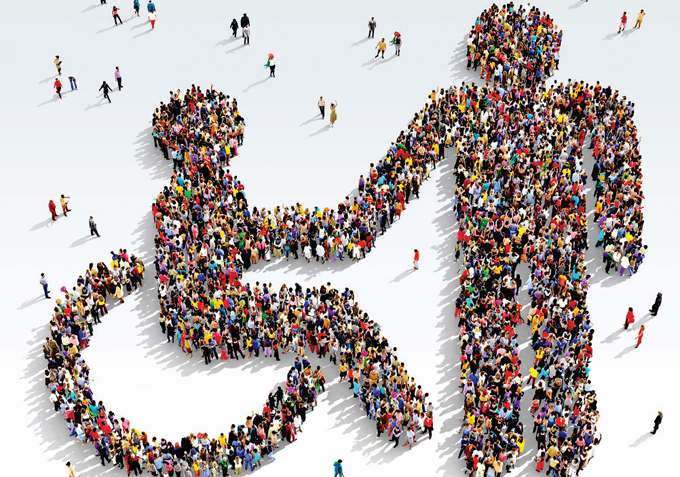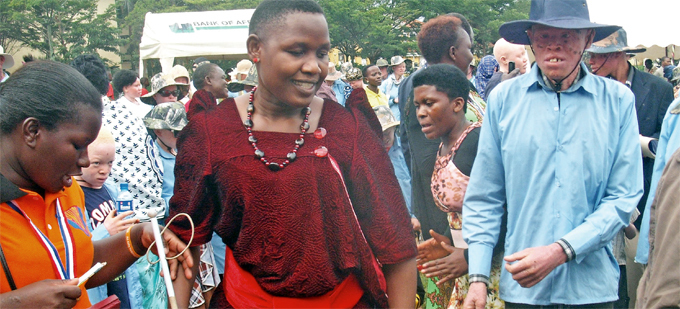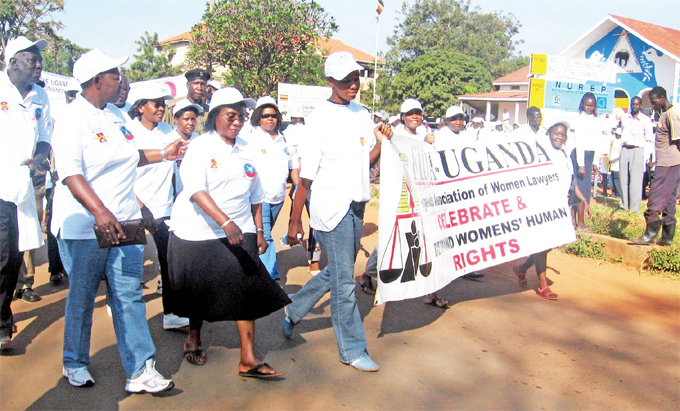Human rights now more respected than ever before
Dec 10, 2018
HUMAN RIGHTS DAY: 70 years of UN Declaration

"All human beings are born free and equal in dignity and rights," reads one of the articles in the Universal Declaration of Human Rights (UDHR). Today, the world celebrates 70 years of the UDHR, adopted by the United Nations on December 10, 1948. The Human Rights Day was chosen to honour the United Nations General Assembly's adoption and proclamation of the UDHR: The fi rst global enunciation of human rights and one of the fi rst major achievements of the then new United Nations.
The formal establishment of Human Rights Day would, however, occur two years later at the 317th Plenary meeting of the General Assembly on December 4, 1950.
This is when the General Assembly declared resolution 423(V), inviting all member states and any other interested organisations to celebrate the day as they saw fit.
But the formal inception of the day started in 1990, after the assembly passed resolution 423(V). The day proved so popular after its inception with a commemorative Human Rights Day stamp issued by the United Nations postal administration in 1952, receiving approximately 200,000 advance orders.
The UDHR is also the world's most translated document, after the Bible, a fact that shows how valuable and popular the day is.
Seventy years later, many achievements have been registered by the UDHR, among which is the translation of the document into over 500 languages. Stephen Ssempebwa, a human rights lawyer and a lecturer of international relations and diplomatic studies at Victoria University, Kampala, says as a result of UDHR, economic, social, cultural, civil and political rights and the right to development are recognised as universal for all human beings. Eighteen treaties and optional protocols, advancing human rights have been agreed upon since 1948.
One hundred and eight countries now allow women the right to vote, compared to 91 countries in1948. One hundred four countries have now outlawed capital punishment, compared to only nine in 1948 and 57% of countries have a national human rights institution today.
Ssempebwa says nondiscrimination and equality have been increasingly reaffi rmed as fundamental principles of international human rights law and essential elements of human dignity. He adds that human rights have become central to the global conversation regarding peace, security and development. CLICK HERE FOR MORE ON THIS STORY
PWDs still marginalised in job market
Despite the challenges before her, Nakimbugwe persisted and went through school knowing that it was only through education that her life could improve. In 2012, Nakimbugwe graduated with a bachelor's degree in Social Sciences at Makerere University.
Unfortunately, even after graduating with a fi rst class degree, Nakimbugwe has never been employed. "Whenever I am shortlisted, employers say they will call me, but they do not. Some even go ahead to give me handouts as if I am a beggar, which is frustrating," Nakimbugwe says.
But she is not alone in that situation; thousands of persons with disabilities (PWDs) continue to be discriminated against when it comes to employment opportunities, for reasons only known to the employers.
 If everybody, especially employers, gave a hand to persons with disabilities, they would discover the ability, loyalty, creativity and hard work that is embedded in them
If everybody, especially employers, gave a hand to persons with disabilities, they would discover the ability, loyalty, creativity and hard work that is embedded in them
Moses Ariho, a programme offi cer with the National Organisation for the Disabled, explains that generally, PWDs are vulnerable by virtue of their impairment and negative societal attitudes arising from fear, ignorance, superstition, neglect and lack of awareness.
"As a result, PWDs have inadequate access to services, information, resources as well as limited participation in the socio-economic development process. Consequently, the majority depend on their families and communities for survival," Ariho says.
According to Ariho, PWDs are not considered in almost everything. "In education for example, there is scarcity of appropriate educational, scholastic and instructional materials, inadequate training of staff handling concerns of PWDs, outdated and limited skills in vocational rehabilitation centres, and inaccessible physical structures at schools," he says.
Ariho says such factors have hindered PWDs' chances to attain education and skills training. There is also the high cost of resources and services such as guides, helpers as well as interpreters. This has left a high proportion of PWDs illiterate and unskilled. CLICK HERE FOR MORE ON THIS STORY
Equal Opportunities Commission changing face of albinism
On November 25, Uganda joined the rest of the world to undertake the 16 days of activism for the elimination of violence against women with albinism. This period has been on until today, when the International Human Rights Day will be celebrated.
 Babirye Kadogo, Buyende Woman MP (centre), roots for rights of people living with albinism in Busoga region
Babirye Kadogo, Buyende Woman MP (centre), roots for rights of people living with albinism in Busoga region
Human rights awareness, violation rates in Uganda
The level of awareness of human rights was slightly lower among females (87%) and the rural population (88%) compared to males and the urban population (with 90% respectively). Persons aged 31 to 59 years were more likely to be aware of their human rights compared to the other age groups.
Furthermore, knowledge of their human rights increases with an increase in the level of education. All respondents aged 18 years and above were asked to establish whether they claimed their human rights during the 12 months before the survey. Only 15% of persons aged 18 years and above had claimed their human rights with more males (16%) than females (14%).
 Human Rights activists marching. According to the UBOS report, persons aged 31 to 59 years were more likely to be aware of their rights compared to other age groups
Human Rights activists marching. According to the UBOS report, persons aged 31 to 59 years were more likely to be aware of their rights compared to other age groups
Similarly, persons with disabilities (19%) were more likely to have claimed for their human rights compared to those without a disabilities (13%). The central region (22%) had the highest proportion of respondents who reported to have claimed their human rights, while the western region (10%) had the lowest. The survey also collected information on whether individuals thought that human rights were respected in the country.
Although the level of awareness of human rights was quite high, only three in every five respondents (60%) indicated that human rights were oftenn respected in Uganda.
The female population, residents of rural areas, those from western Uganda and persons with disabilities were more likely to report that human rights in Uganda were respected compared to the other subpopulations.
Overall, the proportion of the population aged 18 years and above who perceived human rights to be respected in the country slightly decreased from 69% in 2014 to 60% in 2017. CLICK HERE FOR MORE ON THIS STORY
